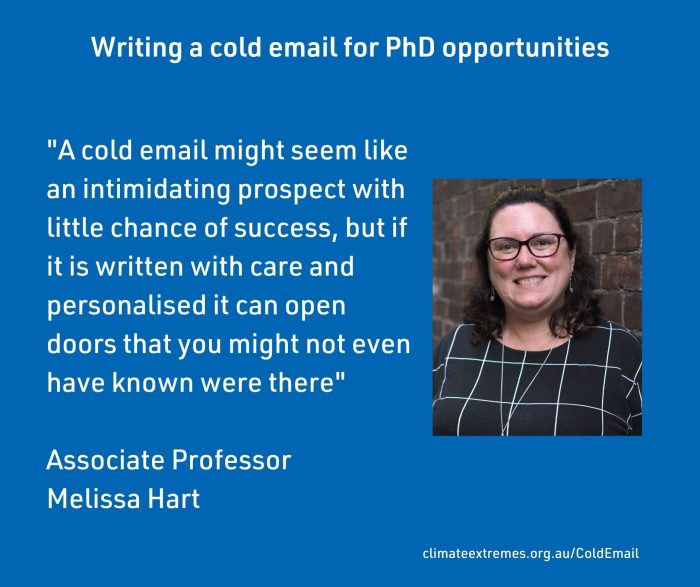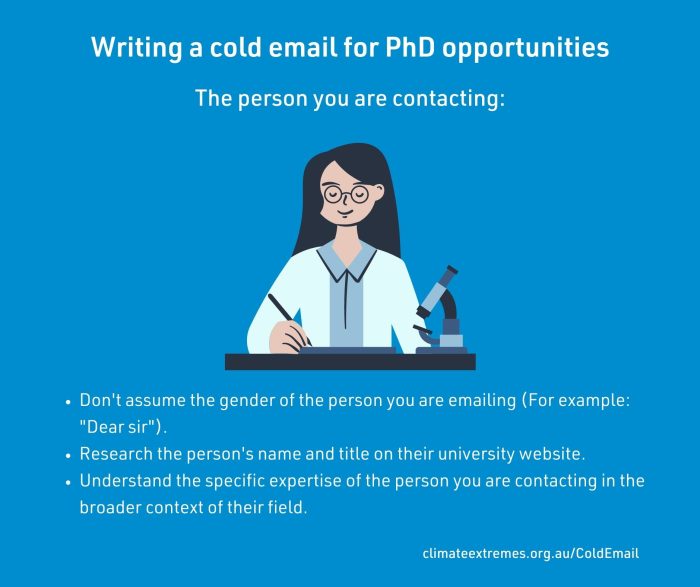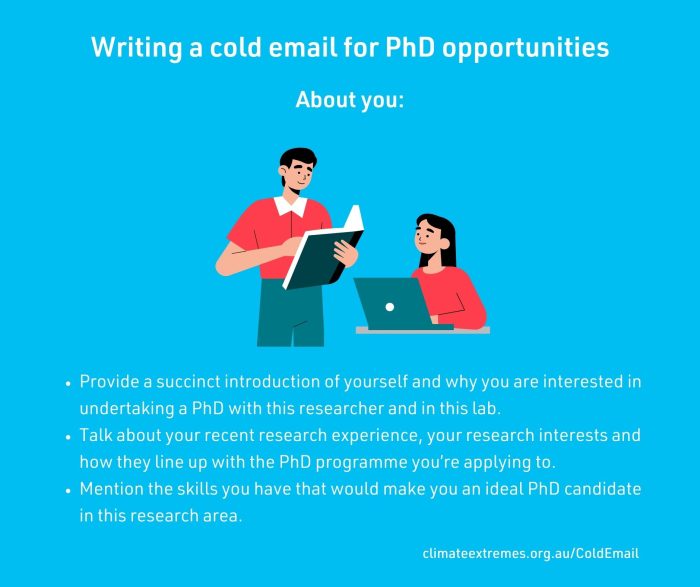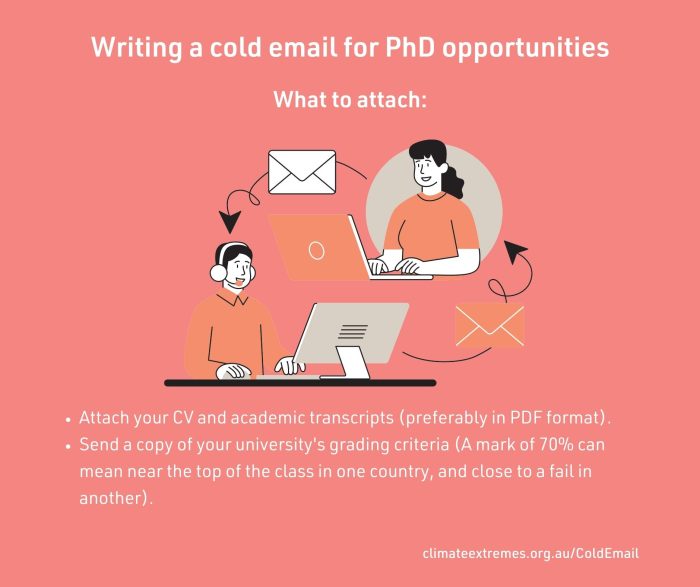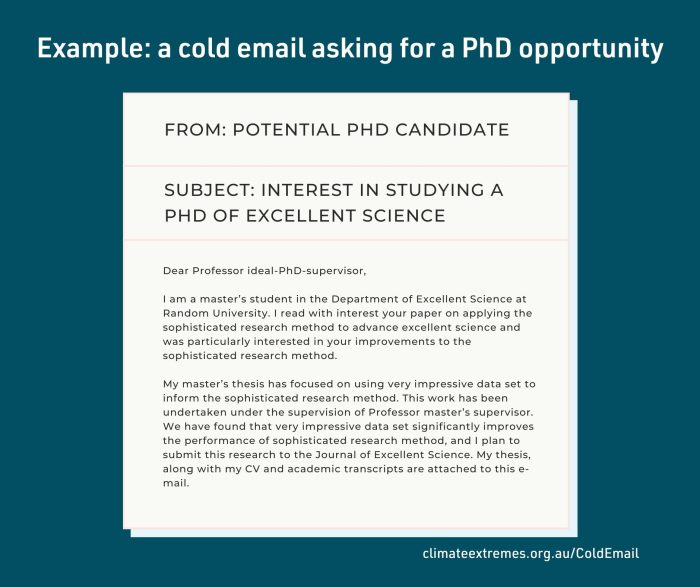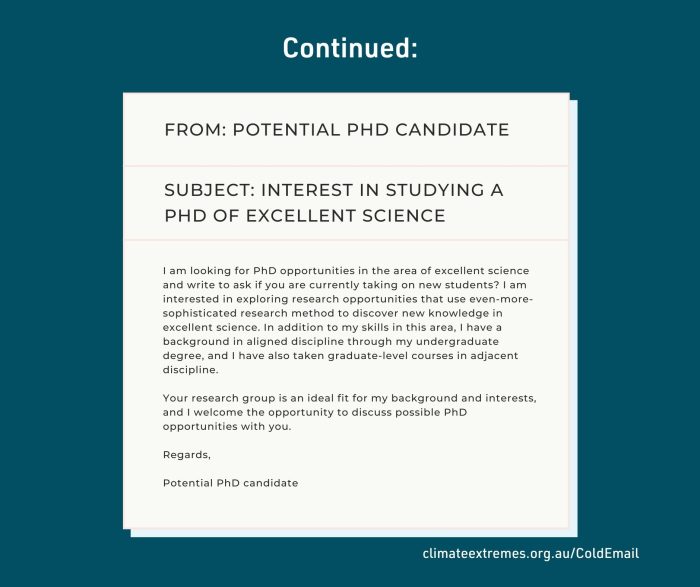Associate Professor Melissa Hart, Graduate Director, ARC Centre of Excellence for Climate Extremes
This piece was originally published in the Nature Careers Community.
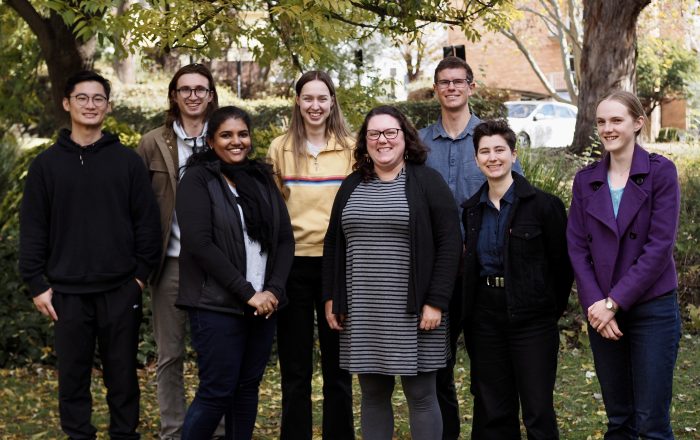
I lead a national, graduate programme and receive multiple e-mails each week from prospective PhD students. I assess these applicants’ academic backgrounds in my discipline of climate science, as well as their interest in, and understanding of, the research my centre does. When I receive a well-written enquiry that ticks all the boxes, I experience a genuine feeling of joy. I’ve been known to forward such e-mails to a colleague with the simple addition of “this student is good!”.
The programme I lead is part of an Australian Research Council Centre of Excellence — a research consortium of national universities, and national and international research partners. Our graduate students are enrolled at one of five member universities, but are part of our cross-institutional graduate programme, which provides a tailored curriculum of fundamental research and communication skills, professional development, mentoring and leadership opportunities.
I have personal experience of success after sending a cold e-mail. During my PhD at Macquarie University in Sydney, Australia, I began searching for part-time employment to gain some industry experience and to supplement my scholarship. On the recommendation of one of my supervisors, I sent a cold e-mail to a local air-quality consultancy. In days, I was invited for an interview and offered a part-time role in a field that aligned nicely with my research. Not only did I earn the money I needed, but I also made connections that I continue to engage with 20 years later.
As well as PhD enquires, cold e-mailing might also help with opportunities post PhD (cold e-mailing for postdoc roles can work under the right circumstances) or if you wish to discuss your research with or ask a question of a researcher you have not engaged with before.
Here are my suggestions for how to write an effective cold e-mail that will get you noticed.
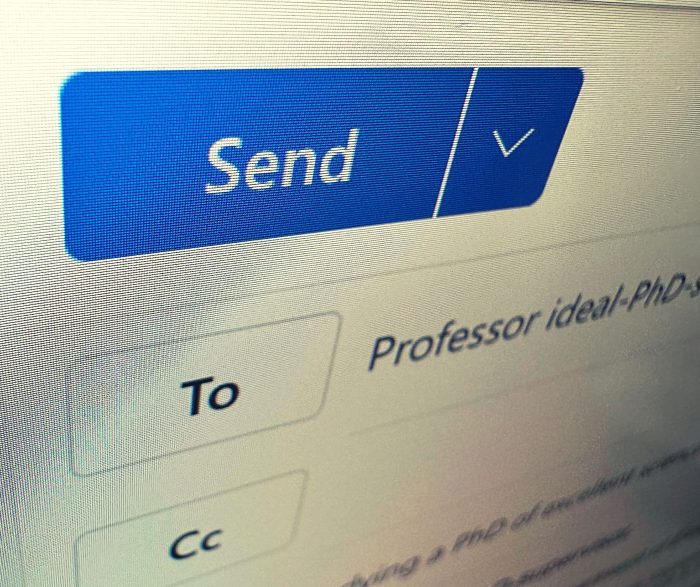
How do I start a cold email asking for a PhD opportunity?
Do not automatically start an e-mail with “Dear Sir…”. The number of e-mails I receive that do is quite disheartening. As a woman in science who has the lived experience of being the only woman in the room, and who advocates for gender equity, these e-mails break my heart.
Rather than making an assumption about gender, address your e-mail directly using the person’s name. Although levels of formality differ by culture and country, it is always best to start with a formal greeting of “Dear Prof/Dr …”. In some countries academics only use the title Professor once they have reached full professor status, whereas in others it is common to use the term for all university academics. Look at the researcher’s listing on their university website and take guidance from there.
Take note of how the researcher signs off — you can use this in subsequent e-mails. I always sign off as “Melissa”, and I am therefore inviting you to call me Melissa in future communication.
What should I write when asking for a PhD opportunity?
Here you want to provide a succinct introduction of yourself and why you are interested in undertaking a PhD with this researcher and in this lab.
Don’t summarise your full CV. Instead, start by introducing your current situation: “I have recently completed a masters in XX at YY university”, before detailing how your background aligns with the research of the person you are e-mailing.
Talk about your recent research experience, and most importantly your research interests and how they line up with the PhD programme you’re applying to.
Make sure you understand the specific expertise of the person you are contacting in the broader context of their field.
For example, avoid saying “I am contacting you because you are an expert in the field of climate science”. The field of climate science has thousands of experts. Which area of climate science are you interested in? Why did you choose this particular researcher? Provide specific details that refer directly to the publications and projects of that person and their group.
Be sure to mention the skills you have that would make you an ideal PhD candidate in this research area. For example, in my discipline we’re interested in recruiting people with programming experience, so that is one of the skills I look for. Do not send a generic e-mail to all academics you contact, tailor your e-mail to each recipient. This is more than simply inserting the title of one of their publications. You want to show evidence that you have read their work and state why it interests you.
An example of this might look something like:
Dear Professor ideal-PhD-supervisor,
I am a master’s student in the Department of Excellent Science at Random University. I read with interest your paper on applying the sophisticated research method to advance excellent science and was particularly interested in your improvements to the sophisticated research method.
My master’s thesis has focused on using very impressive data set to inform the sophisticated research method. This work has been undertaken under the supervision of Professor master’s supervisor. We have found that very impressive data set significantly improves the performance of sophisticated research method, and I plan to submit this research to the Journal of Excellent Science. My thesis, along with my CV and academic transcripts are attached to this e-mail.
I am looking for PhD opportunities in the area of excellent science and write to ask if you are currently taking on new students? I am interested in exploring research opportunities that use even-more-sophisticated research method to discover new knowledge in excellent science. In addition to my skills in this area, I have a background in aligned discipline through my undergraduate degree, and I have also taken graduate-level courses in adjacent discipline.
Your research group is an ideal fit for my background and interests, and I welcome the opportunity to discuss possible PhD opportunities with you.
Regards,
Potential PhD candidate
What attachments should I send when cold emailing about a PhD opportunity?
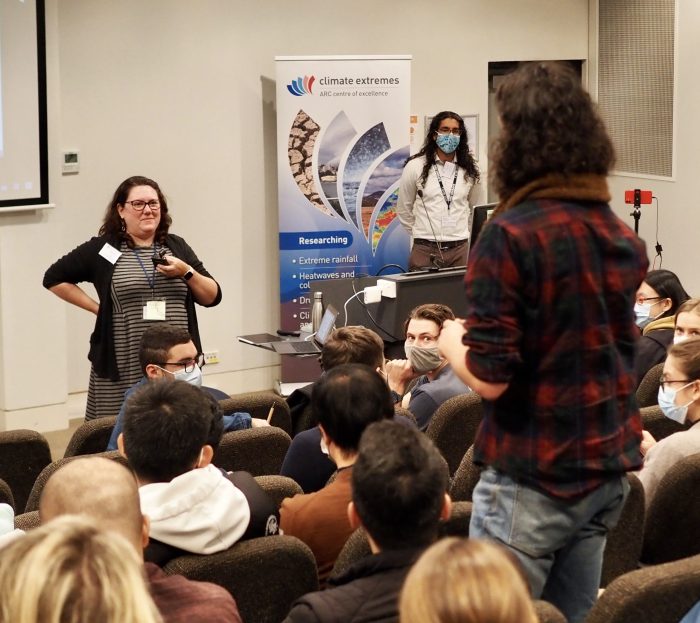
To properly assess a PhD applicant, I need to see a CV and copies of academic transcripts, preferably in a PDF format. Universities differ greatly in the grading systems they use, and how they assign grades. A mark of 70% can mean near the top of the class in one country, and close to a fail in another. Therefore, it is also helpful to include a copy of your university’s grading criteria.
Your CV should list your education and relevant employment experience, details of any independent research components from previous degrees, any publications you might have, and a list of contact details for referees.
A cold e-mail might seem like an intimidating prospect with little chance of success, but if it is written with care and personalised it can open doors that you might not even have known were there.
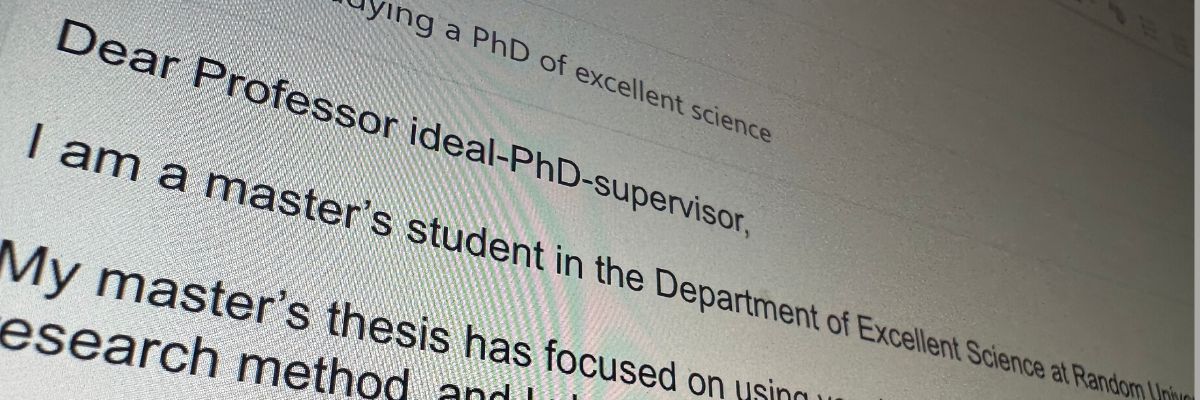
This piece was originally published in the Nature Careers Community. doi: https://doi.org/10.1038/d41586-023-00786-8
